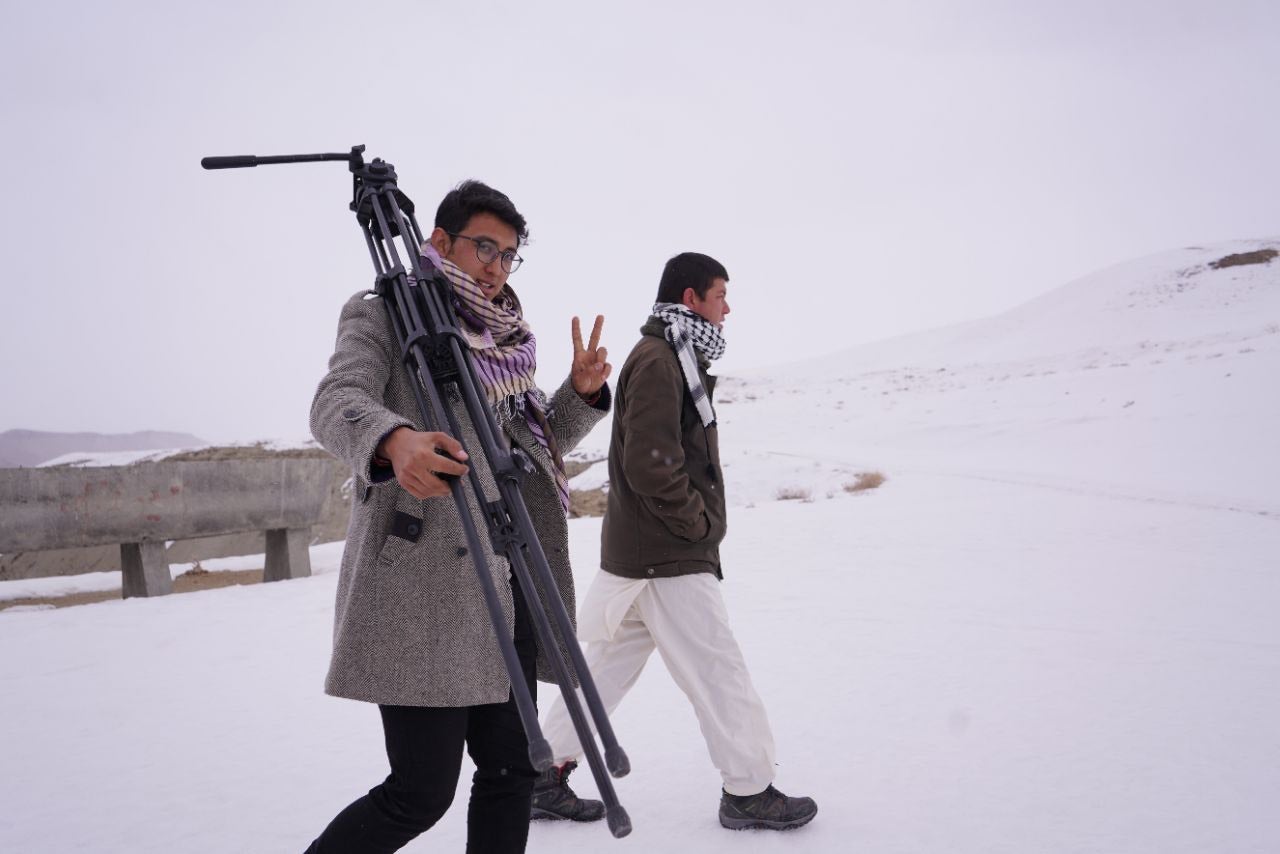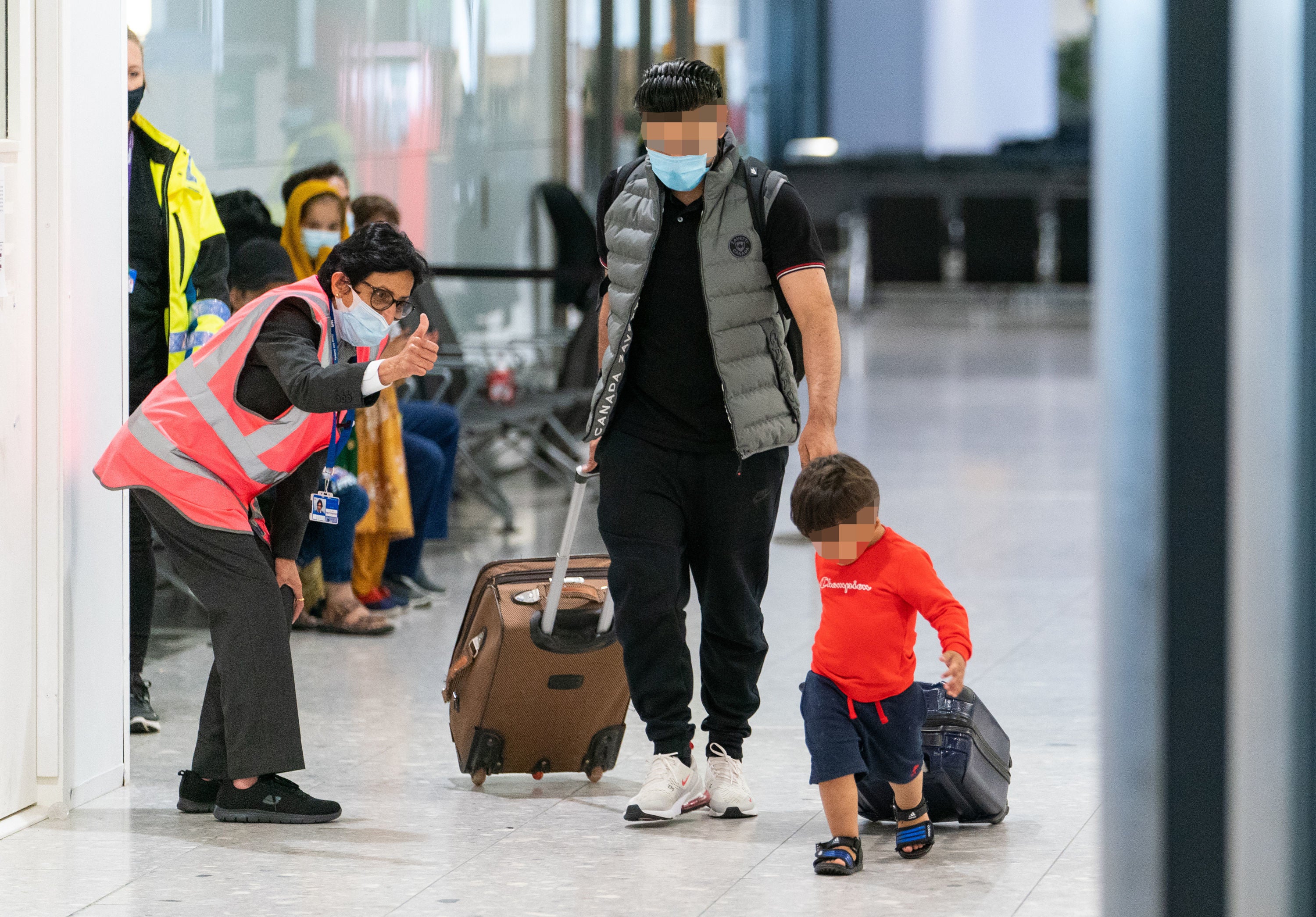Government condemned for ‘shameful’ eviction of thousands of Afghan refugees from hotels
Ministers told those who put themselves in ‘mortal peril’ facing homelessness
Your support helps us to tell the story
From reproductive rights to climate change to Big Tech, The Independent is on the ground when the story is developing. Whether it's investigating the financials of Elon Musk's pro-Trump PAC or producing our latest documentary, 'The A Word', which shines a light on the American women fighting for reproductive rights, we know how important it is to parse out the facts from the messaging.
At such a critical moment in US history, we need reporters on the ground. Your donation allows us to keep sending journalists to speak to both sides of the story.
The Independent is trusted by Americans across the entire political spectrum. And unlike many other quality news outlets, we choose not to lock Americans out of our reporting and analysis with paywalls. We believe quality journalism should be available to everyone, paid for by those who can afford it.
Your support makes all the difference.The government has begun a “shameful” campaign of evicting thousands of Afghan refugees from hotels across Britain.
All of the Afghans facing homelessness were evacuated by Britain during the fall of Kabul – many due to their heroic work with British forces during the 20-year conflict.
The Afghans, which include families with young children, have been living in the hotels since their rescue from the beleaguered country in 2021.
Now, all 8,000 living in the so-called bridging hotels have been given notice and will be made to leave Home Office-funded accommodation by the end of August.
One in five who have already been evicted presented as homeless to their local council, according to the Local Government Associaton (LGA), as they struggle to secure private rentals during the UK's worsening housing crisis.
Amid warnings many had put themselves in “mortal peril” to help the British, former Tory leader Sir Iain Duncan Smith called on the veterans’ minister, Johnny Mercer, to “have one more go” to prevent anyone becoming homeless, saying: “At the end of the day, we do owe them.”
And Admiral Lord West, the former head of the navy, also called for action, saying: “Our nation has a debt of honour to those who risked their lives – and those of their families – to assist our men and women who were fighting in Afghanistan. This needs to be resolved now.”
The call comes after the LGA warned the situation was “likely to worsen significantly” in the coming weeks as the staggered evictions continue.
Amir Hussein Ibrahimi, 24, who is living in a hotel in Southend-on-Sea after coming to the UK under a government scheme to help those who furthered British values in Afghanistan, told The Independent he was unable to sleep through worry and had been turned down by 10 landlords.
Mr Hussein, who works part-time as a marketing production assistant at the Good Chance Theatre in London, is facing eviction on 8 August. He has struggled to find somewhere due to soaring rents, the need for two or three months’ rent for a deposit and because he doesn’t had a credit score.

“It’s too much for most of the Afghan families in this hotel. We don’t have enough money for rent and deposit and everything else. The government support is not enough to cover all the expenses,” he said.
Asked if he was worried he could be facing homelessness next week, the trained photojournalist and videographer said: “This is one of the questions that I have in my mind, yes.
“I don’t know where I am going or what I want to do. There are lots of things happening in my mind, I am so nervous. During this last week, I didn’t sleep well. Everything is not clear and the Home Office and the council are not being clear with us about what is the next step.”
Labour MP Dan Jarvis, who served in Afghanistan, said it was “shameful” that those who had helped the UK were being left homeless.
He said it was reasonable to move people out of hotels, but not at the pace that the government was doing it.
“These are not economic migrants,” said Mr Jarvis. “These are Afghans who placed themselves in mortal peril to serve alongside British forces in Afghanistan and they did so at our request.
“These are people to whom we’ve given an invitation to come to our country. Nobody should be homeless and these people need to be given the time and space ... to ensure that they are properly relocated.”

He added: “We owe them a debt of gratitude, so I think what we need to do is move at a pace that sees these Afghan families transition in a way that allows local authorities the time to identify suitable accommodation. The notion that people are being forced to become homeless is just shameful.”
Sir Iain called on Mr Mercer to “have one more go at this to see whether we can somehow find some way of accommodating the remaining groups – at the end of the day, we do owe them”.
In response, Mr Mercer said: “We’ve done a huge amount of work to help get these Afghan families out of hotels and into long-term suitable accommodation. That’s what’s best for them and for British taxpayers.”
He vowed no family would end up on the streets, telling the BBC the “vast majority” of those presenting as homeless “have actually been offered somewhere to live – it’s just for some of them, it’s not where they want to live”.
“Which is understandable, but that’s not the same as living on the street because the government hasn’t done its job,” he said.
Last month, Mr Mercer said the government had made £7,100 per person available to support refugees to move “including through providing deposits, furniture, rental top-ups and rent advances”.
But in Northampton, where 179 Afghans have been told they have to move by the end of this month, a council spokesperson said that around 50 people have nowhere to go.
Rachel Hopkins, the shadow veterans minister, accused ministers of “failing Afghans who put their lives at risk helping our armed forces”.
As we approach the second anniversary of the evacuation, she said it was shameful that ministers “are kicking 8,000 eligible Afghans out of hotels by the end of this month without promising that they will not be made homeless”.

Julian Lewis, the Conservative MP and former chair of the Commons defence committee, warned of the “special debt” owed to those who helped the British.
“There is an opportunity to recognise the special debt that we owe,” he said, “an opportunity both for the veterans’ agency and the service charities to look at their own terms of reference and see if they there isn’t any way in which they can use their very considerable resources to help resettle.”
Sarah Champion, the chair of the Commons International Development committee, said she was “appalled” at the government’s actions. “Human suffering and moral duty doesn’t seem to register for them,” she added.
A Refugee Council spokesperson called on the government to halt the evictions. “This is not how those who fled the Taliban and were promised a warm welcome in the UK should be treated,” it added.





Join our commenting forum
Join thought-provoking conversations, follow other Independent readers and see their replies
Comments